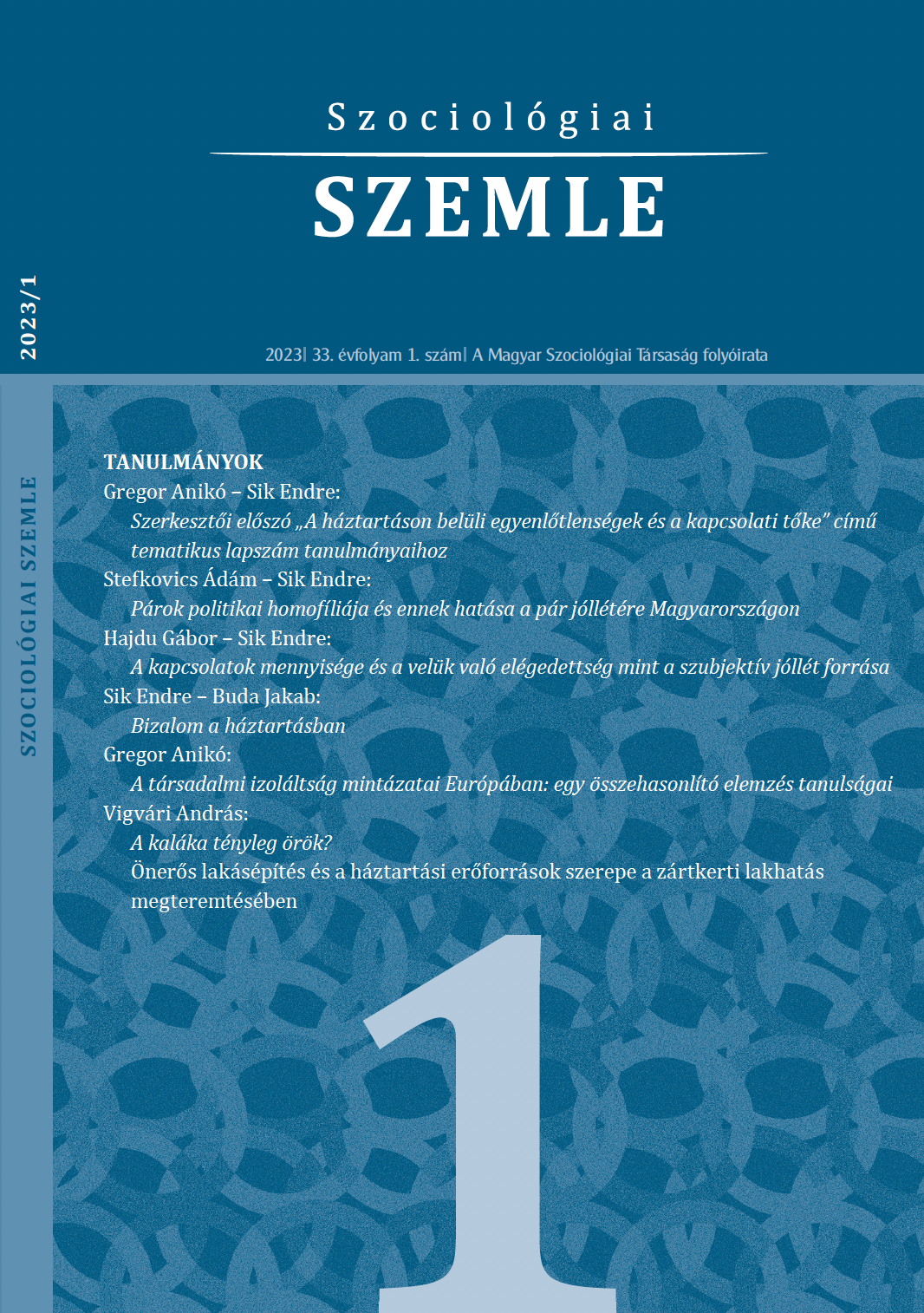Political homophily of couples and its effect on the couple’s well-being in Hungary
Abstract
One of the false clichés may be that “opposites attract”. Rather, the literature on political homophily suggests that the political identities and behaviors of members of couples in relationships are similar, which may well be due to psychological laws. However, little is known about whether political homophily has a positive effect on romantic relationships or on the well-being of individuals. Our study examines the process of differences in the political identity and behavior of couples in Hungary and its effects on individual and couple happiness. Our data source is the 2015 KSH Household budget and living conditions survey. First, we used logistic regression models to explore the factors shaping political identity (trust) and various political participation-based homophily, and then we investigated the impact of these political homophily variables on happiness using multilevel models. Results show that both identity- and participation-based political homophily is common among couples, but not universal. Marriage, education and residence were found to be the most important determinants of political homophily. Participatory political homophily has a positive effect on the happiness of couple members, presumably because politically homophilic couples are more successful in avoiding political conflict and less likely to have value differences that can cause problems, for instance in raising children.





